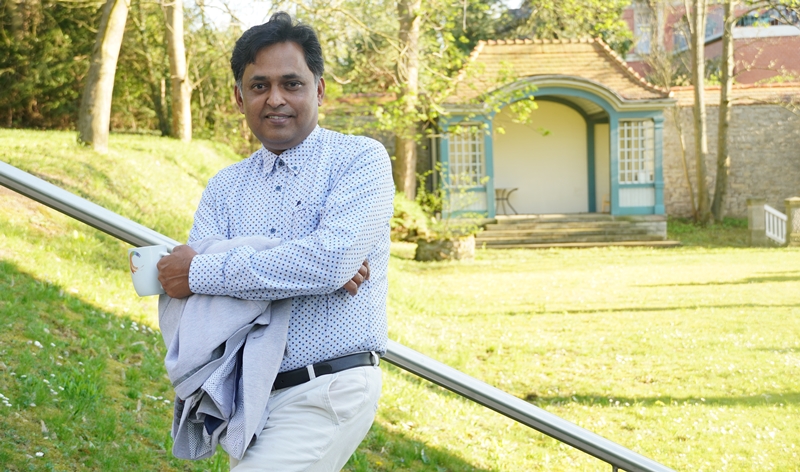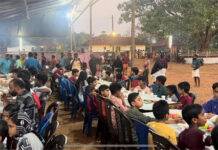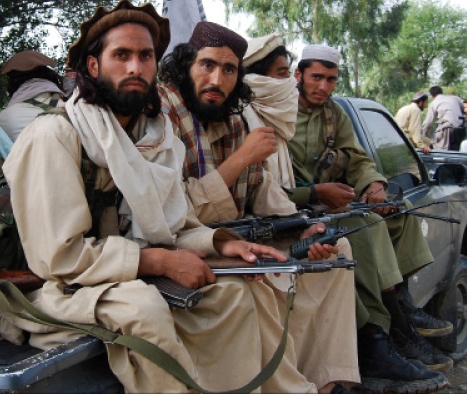Prof. Irfan Ahmad is senior research fellow, Max Planck Institute for Study of Religious and Ethnic Diversity, Gottingen, Germany. His most recent publication is Religion as Critique: Islamic Critical Thinking from Mecca to the Marketplace (University of North Carolina Press, 2017) and The Algebra of Warfare- Welfare: A Long View of India’s 2014 Election (co-edited with Pralay Kanungo, Oxford University Press, 2019). He has held visiting positions, inter alia, at Brown University, Rhode Island, USA. He is on the editorial boards of Public Anthropologist, South Asia, and International Journal of Islam in Asia. He was the founding co-editor of the Journal of Religious and Political Practice.
Please tell us about your intellectual trajectory and what were the factors that shaped you as a young person?
Probably, it is too early to describe my own trajectory, an insignificant one. It may surprise you that before my university education I did not think that I would become an academic or professor. Given the family’s economy and dominant but coercive Bihari/Indian culture, the expectation –or pressure, if you will –was to become a “collector”, shorthand for bureaucrats. But as I look back I realize the fact that choice as much as coincidence and accidence mark our lives.
In early teenage, I thought of opening a pān shop or becoming a qawwali singer. I initially studied in my village’s madrasa where I learnt singing Islamic hymns. While tarrying with such ideas, as teenagers do, I also got interested in poetry the best of which I unintentionally memorized. I also wrote my own and recited it, among others, to my mother who appreciated it. She urged me to write what is ḥaq (truth). I also wrote essays and articles –all in Urdu. My father, a commerce graduate, enjoyed poetry and philosophy and had books on them in his termites-imbued almirah. Later I read books of all sorts but those that inspired me were more of philosophy and poetry than of anthropology/sociology, Charles Wright Mills’ Sociological Imagination being one example from the latter. It was Avijit Pathak at JNU who introduced us to Sociological Imagination. A brilliant teacher, he democratically engaged with his students. My brother, a linguist, supported me throughout. He took care of the family to allow for my academic pursuits.
You have written as well as edited a wide range of books, the latest among them being The Algebra of Warfare- Welfare: A Long View of India’s 2014 Elections. How do you look at the current political climate in India and what according to you are the biggest challenges facing India in the 21st century? Do you think that the forces of globalization, communalism and corporatization of politics have made India a much more fragile democratic enterprise?
Challenges India face are also global. At its core, it is deadly nationalism. I do not simply mean Savarkar’s version of a purified, anti-pluralist unitary nation-state, now presented internationally as a large market and neither am I talking about the usual tripartite presentation of it as Nehru’s vs. Patel’s vs. Ambedkar etc. If nationalism, following anthropologist Franz Boas, is “devotion to the interests of the State,” it characterizes almost all, socialists-Marxists included.
In his autobiography, Nehru mentions reading books on Garibaldi, father of Italy’s nationalizing unification. Garibaldi inspired him for “visions of similar deeds” in India, which he, beholden to tutorials in Western nationalism, saw as “fragmented.”
Such nation thinking is so pervasive that national has become rational and both in turn sacral. Recall that for Aurobindo “nationalism is a religion that has come from God,” a formulation parroted by Baba Ram Dev and the Prime Servant. One who speaks for the nation thus stands above critique and deemed as benevolent. Viewed from the perspective of humans pigeonholed into nation-states, the ruthless advancement of “national interests” – a tenet of international politics after WW II – however, is inhuman. Inhumanity in external affairs cannot magically generate nicety in domestic realm and vice versa. Nationalism has killed far more people than any other program in modern era.
Movements against colonialism –British, Dutch, and French and so on –are mistakenly viewed as nationalism. Unlike so-called postcolonial nationalism, they possessed open-endedness, not closure. As Fredrick Cooper shows about French West Africa, for many anti-colonial leaders there nation-states was not the only future, much less an inevitable one. Consider the forgotten anti-colonial Indian leader Hasrat Mohani (1878 – 1951); Abul Kalam Azad viewed him as a dervēsh. For Mohani, the future, free India was the “Constitutional Indian Union of Federations of Republics,” one federation each in east, south, centre, south-west, and west of India. We need to recover visions such as Mohani’s. How many Indians know about Mohani who coined the slogan Inquilab Zindabad, Long Live the Revolution?
One of the most central theoretical concerns in your academic career has been Islam and you have produced three path breaking books on the theme Terrorism in Question: Towards an Anthropological Approach, Islamism and Democracy and Religion as Critique: Islamic Critical Thinking from Mecca to the Marketplace. How do you make sense of the growing Islamophobia around the globe and increased attacks on Muslim identity in both Europe and South Asia in general and the dangers to Indian secularism in the light of fundamentalist majoritarianism in particular?
Islamophobia is taken as an attitudinal issue arising from ignorance or prejudice. Most connect it to 9/11. However, there is more to it. It is fundamentally a political, international issue. Its origin is traceable to the Cold War. As the USSR’s collapse left the West with no enemy to rally around, Colin Powell said: “I am running out of demons. I am running out of enemies.” The West, then, fashioned Islam as the new enemy replacing Communism. Huntington borrowed his clash of civilization thesis from Bernard Lewis, an Orientalist scholar-warrior who provided “the intellectual ammunition for the Iraq War.”
In India, terrorism substituted with Islam precedes 9/11. The Indian government campaigned internationally to make terrorism an issue. In 1994, B. N. Jog, a Hindutva votary, published Threats of Islam: The Indian Dimensions. To him, “The raison detre for my writing this volume is simply to make Hindus aware of true nature of Islamic aggression” and “during the last 1200 years, Muslims in India have devastatingly overrun the total life of Hindu society. Not in India alone, but in Spain and Balkan states in East Europe too, the Muslims completely destroyed the life of those societies.” Modi’s 2001 statement nearly replicated Jog. Both enacted hostility to Islam –shared by the Western power and its Indian props – which, as Peter Gottschalk and Greenberg observe, stretches over three centuries.
If not earlier, terror arrests began in 1994, when, for instance, the police arrested Nisaruddin Ahmad, a student of pharmacy and resident of Gulbarga in Karnataka for allegedly participating in blasts in trains. After a long battle, Nisar was released from jail in 2016. When released, Nisar said: “I am free but what you see now is a living corpse.”
Islamophobia as politics is embodied in law. After 9/11, India passed new anti-terrorism laws and created institutions like National Investigation Agency. If it was just a prejudice, we would have also passed laws against rampant prejudices according to which Bengali culture is superior to Odia or Bihari one and “Madrasis” are inferior to North Indians.
Notably, terrorism unites nation-states, which may not see eye to eye with each other on other issues. Muslims – for instance, Taslima Nasreen or Fattah El-Sisi – too engineer Islamophobia. Philosophically exhausted, ethnic nationalism now threatens democracy and pluralism more than it did earlier. We need to envision new features and, therefore, new pasts, the present is effectively no more than a ground of mediation between the two.
How do you look at India’s decaying public universities and the onslaught on their prosperity in terms of fund cuts, nepotism in terms of appointments, lack of basic infrastructure, inability to mobilize students and the lack of a research conducive climate? What are some of your biggest concerns?
I would rather use “dismantle” because decay refers to factors which are internal. What we face is an external dismantling. This too is in the name of predatory nationalism – viewed simultaneously as culture and market.
That higher education should also produce means we all need to live by is a truism. However, what we have today is a grotesque utilitarianism according to which everything must have a market functionality. The rush for unbridled superiority of exchange over use value can only unleash alienation, leaving no worthy place for poets, artists, singers unless they join the Bollywood machine. Setting aside issues of mental and social health, suicide by students, job seekers and the redundant (e.g., of the Jet Air) is on the rise. PhD degree-holders unsuccessfully compete for the job of office attendant and people with MBA degrees become petty thieves.
The nationalist complex to rise in the global university ranking is reminiscent of colonized consciousness. What else is the urge for “scientists” to prove that plastic surgery was prevalent, in pre-Islamic, Hindu India? Our models continue to be the West, though neglectful of its good tradition. In the Western tradition of liberal arts education, students pursue their non-hierarchical interests to develop a holistic perspective on the world to become critical thinkers. I joyfully taught at such a college: University College Utrecht, The Netherlands.
Beyond the party divide, managers of “new” India, however, view universities largely as factories manufacturing products like jeans. As wearers of jeans turn their bottoms into mobile advertising kiosks of their brands, students would become clients, teachers consultants and universities mega brands competing against each other. In some ways, it is already happening.
The decreasing expenditure on meaningful education and the ever-rising defense budget is symptom of this lethal national competition. Strangely, there is no dissensus, to invoke Jacques Rancière, on the militarization of nation-states and higher education among political parties. Can the power elites, who boast inventing and buying unmanned aerial vehicle, drone, to sight and kill the enemy, also see within – that is, their own conscience, if that still survives?
Critical intellectuals ought to formulate alternatives to nation-worship as a militarized economy. Existing liberalism has no credible alternative because its celebration of choice and rights based mostly on one’s birth within a territory is blind, even hostile, to rights of others outside its sanctified geography which none chooses to be born into.
Please share with us your upcoming projects and the themes that you wish to engage with in the future.
I am working to finish two books. I was about to send to publisher the manuscript on terrorism and the need for a new anthropology you mentioned earlier. At the last moment, I thought of rereading it. It was an irrational judgment. Writing has never been an entirely rational endeavor for me. I felt it was not ready yet. It will take some weeks of undivided concentration.
Another book is about the history of anthropology/sociology in India. In it, I ask: How the discipline has viewed power and how power has shaped the discipline. For long, sociologists have delightfully sociologised others; it is time to sociologise sociologists themselves. I want to extend my inquiry, if only preliminarily, to other disciplines as well – political science, for instance. Conceptually, this book stems from my concern with truth rather than merely the ‘real’. I am puzzled why social scientists say that their concern is “reality.” In short, I aim to examine what is true about this reality.














